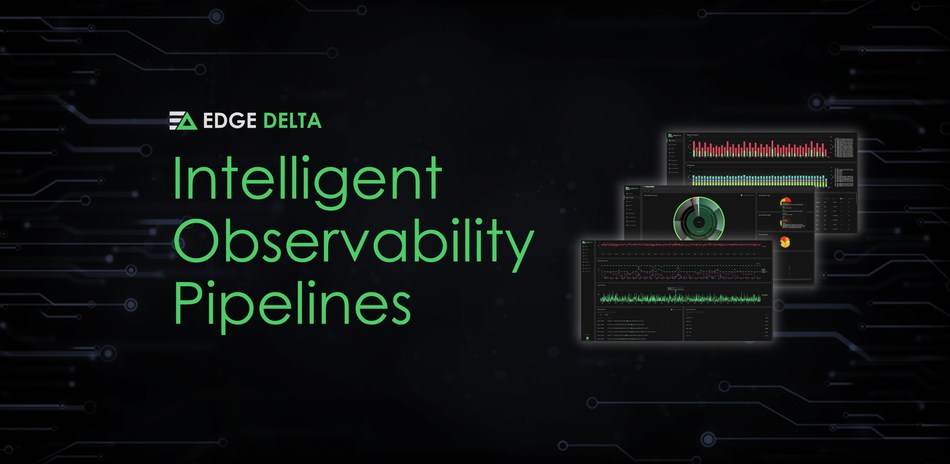Edge Delta, the leading automated observability platform for Kubernetes, containers, and microservices in the cloud, today announced new capabilities for dynamically processing and routing logs, metrics, and traces. The innovative approach allows DevOps, Security, and SRE teams to analyze large volumes of streaming data without the cost, delay, or complexity of requiring data to be indexed, helping customers decouple where machine data is analyzed from where it is stored.

Operational and Security use cases that require real-time insights are forcing engineers today to make difficult decisions around how their production monitoring systems are architected. The exponential growth of data has made the traditional centralized approach of sending all logs, metrics, and traces to a one-size-fits-all data lake has become both technically limited and financially infeasible. This has led to organizations going through the endless exercise of trying to predict which machine data sets surpass the value threshold required to qualify for premium hot storage tiers, and which are relegated to colder storage options.
Before Edge Delta, this meant making concrete decisions that forced engineering teams into rigid data pipelines. Developed by Ozan Unlu, CEO and Fatih Yildiz, CTO, Edge Delta is taking a modern approach to observability by giving enterprises the ability to use distributed stream processing and federated machine learning capabilities for intelligent, dynamic, and automated data routing to optimal destinations. Rather than neglecting datasets to solve for technical and financial constraints, organizations now have access to limitless analytics and unparalleled visibility leading to significant operational efficiencies and predictability that was previously not possible.
“Complete visibility should be accessible to all organizations,” said Omer Singer, Head of Cybersecurity Strategy at Snowflake. “Edge Delta’s technology, combined with Snowflake Data Cloud, frees up engineers and analysts to use log data and metrics, rather than manage around limitations of traditional solutions. Easy deployment and automation are critical at cloud scale.”
“Situational awareness is key for both operations and security use cases, but the explosion of sources and resulting data volumes has made an already difficult task much worse,” said Joan Pepin, Founder and CEO at ZeroWall.io, previously CISO at Auth0, Sumo Logic and BISO at Nike “Edge Delta’s approach to this problem is key to keeping up with your rapidly growing footprint and ensuring full visibility and the ability to correlate across all machine data.”
“The insights into streaming data enabled by Edge Delta’s Automated Observability platform change the way organizations approach both capital planning and back-end data architecture design,” said Patrick Byrne, Senior PM at Boeing. “The new Intelligent Observability Pipelines allow for accurate predictions and dynamic data routing, drastically reducing the mean-time-to identify and recover from potential production incidents. The technology improves planning cycle efficacy and significantly increases operational efficiency.”
Modern enterprises and leaders in the market are making significant investments in observability. Integrating, enriching, and improving the capabilities of platforms such as Splunk, Datadog, Elastic, Snowflake, New Relic, and Sumo Logic – Edge Delta provides companies with observability pipelines to achieve the insights and the context to make informed decisions.
As part of the announcement today, Edge Delta Intelligent Observability Pipelines are now available in limited beta supported as both a SaaS service as well as On-Premise.
Image licensed by: Adobe Stock
Related News:
BlueVoyant Report Reveals Ransomware is the Number One Cyber Threat facing Higher Education

